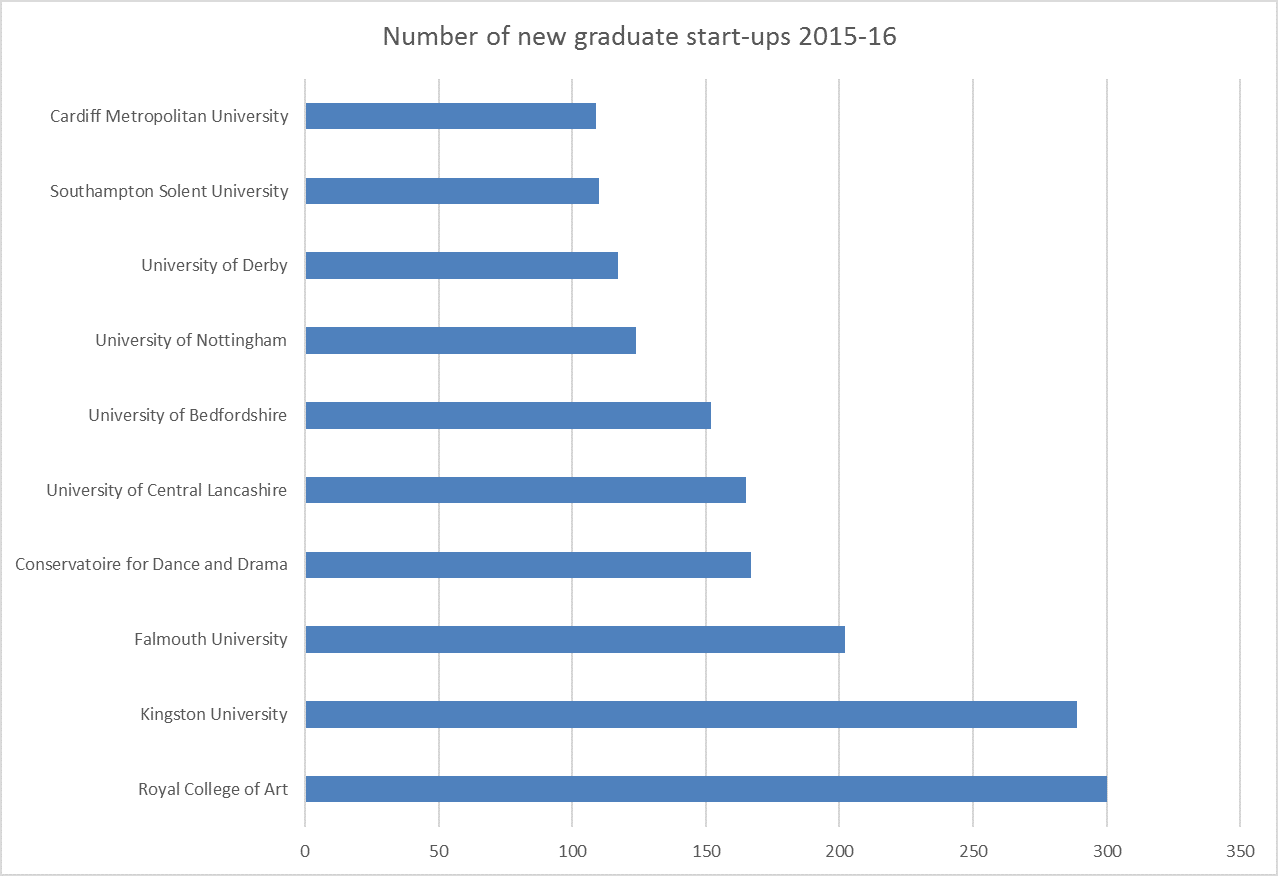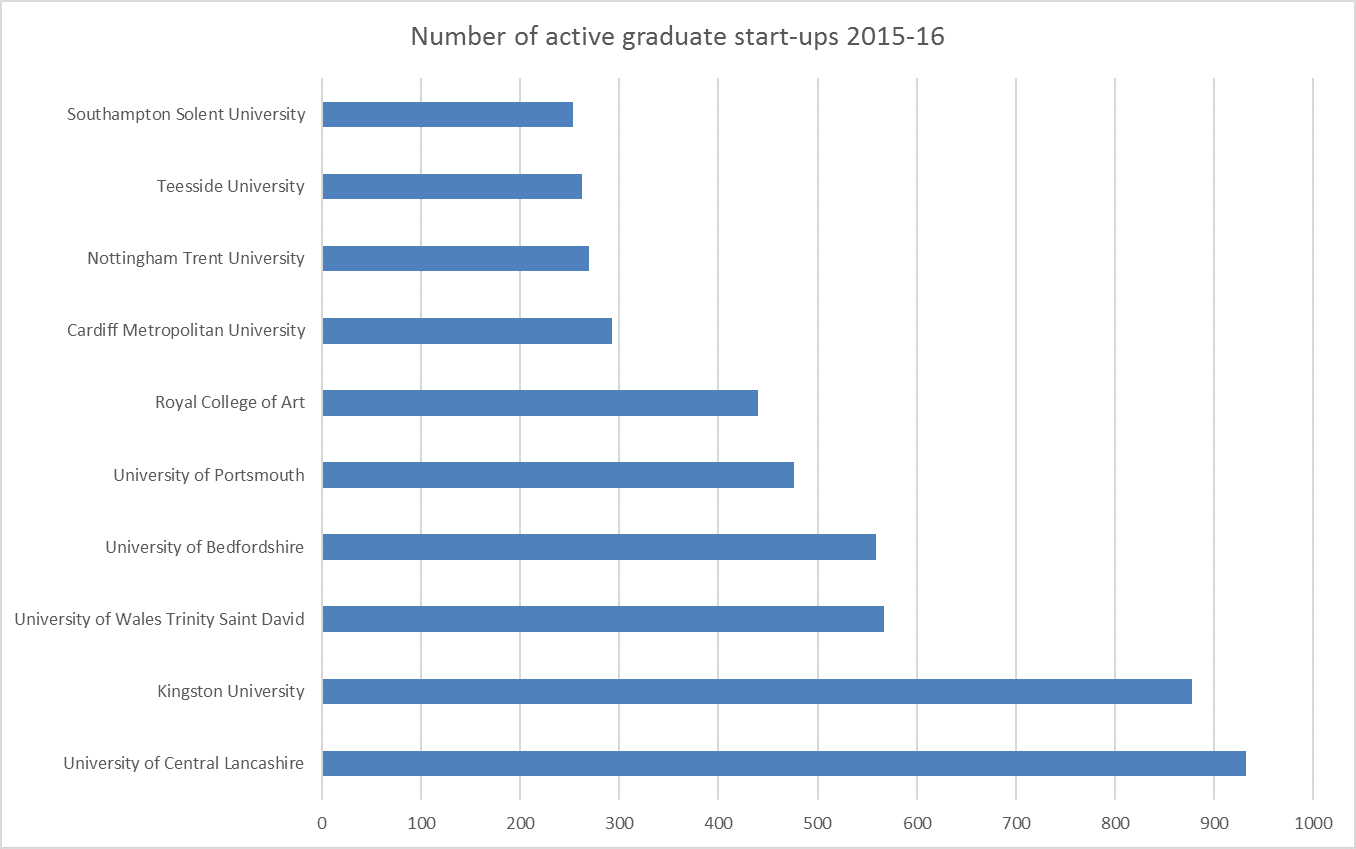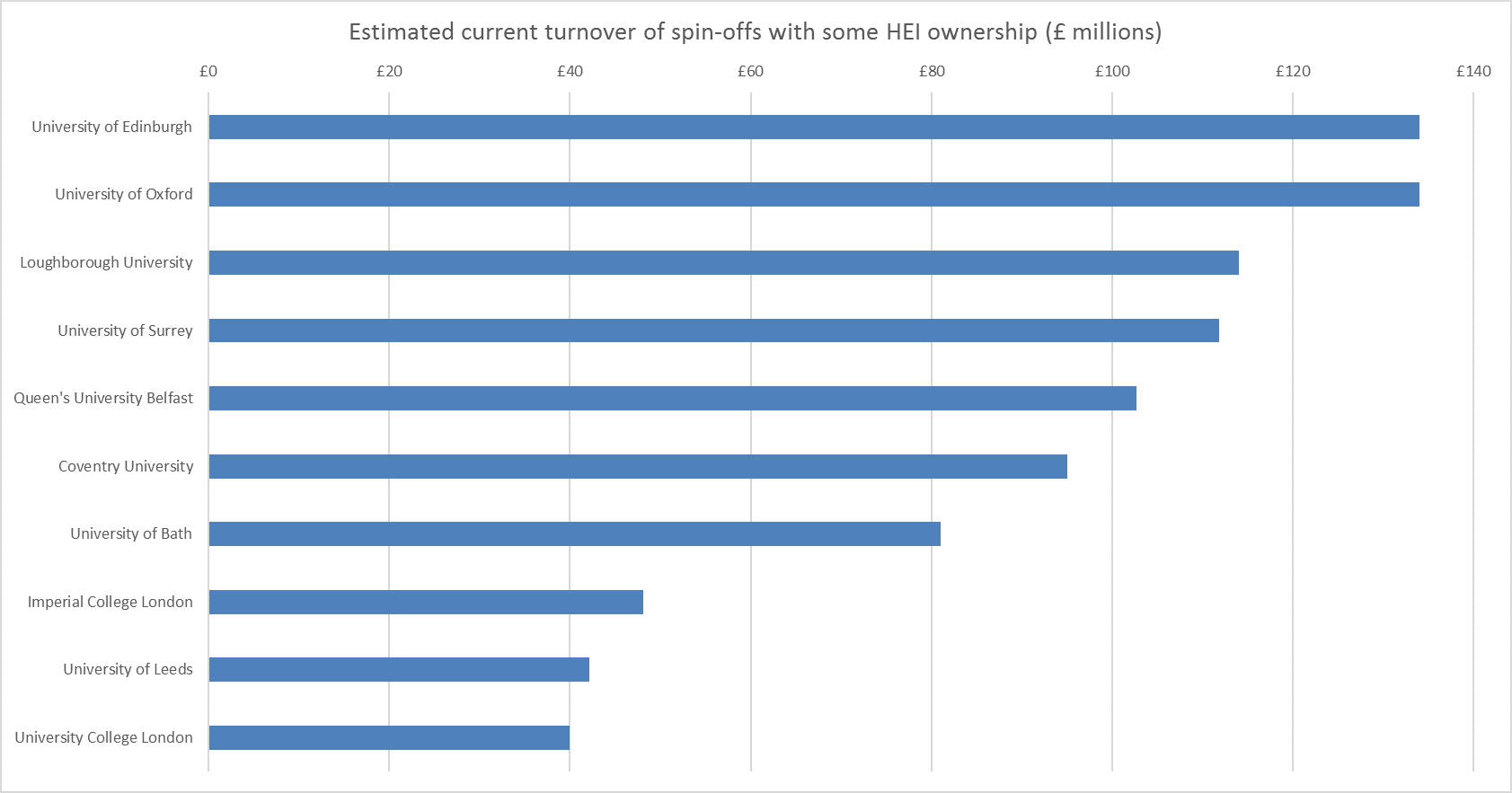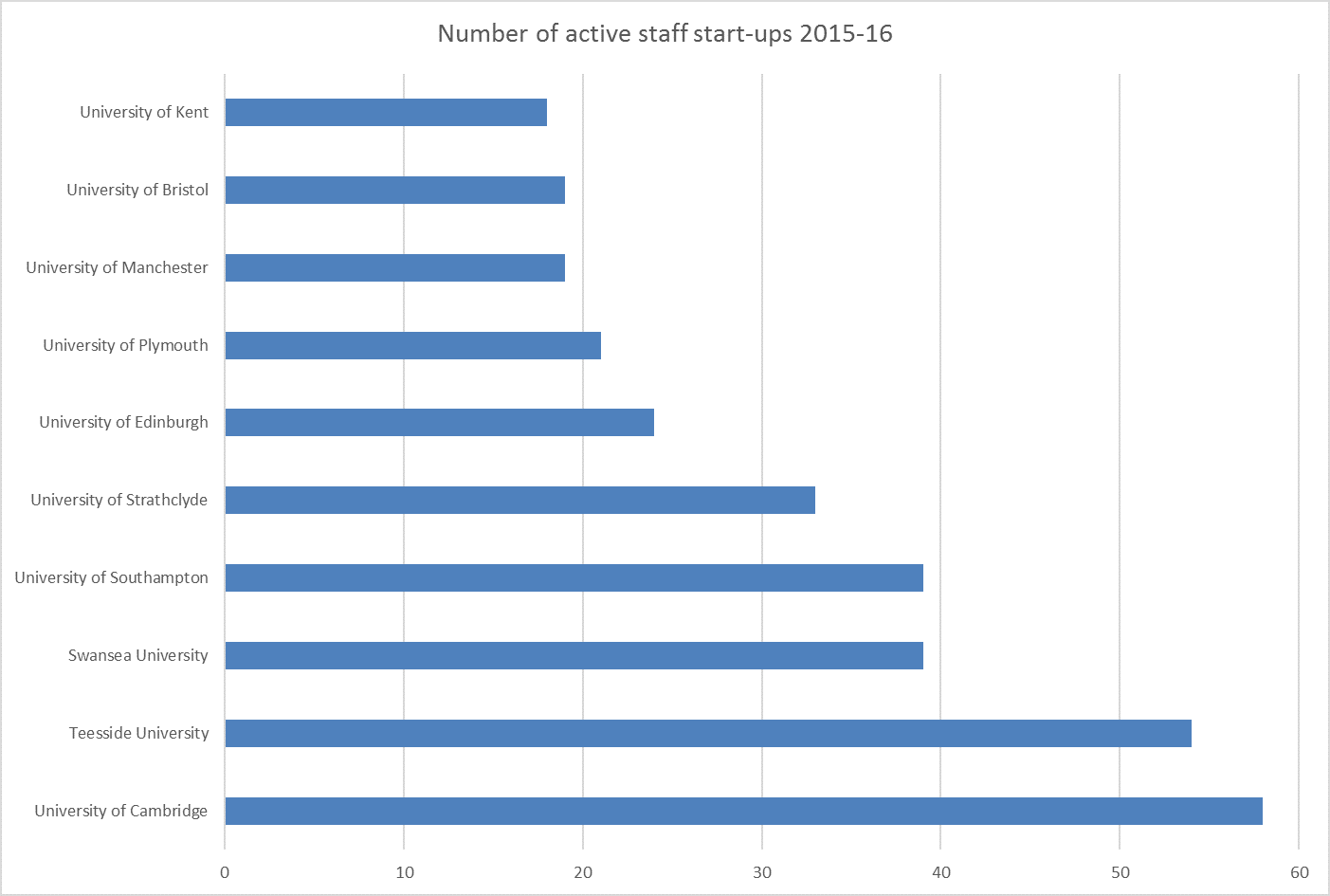Companies that start life as spin-offs from university research by academics or ideas from graduates are linchpins of what is known as knowledge transfer activity in higher education.
Many institutions pride themselves on having expertise in producing spin-off firms from academic research, a number of which can go on to bring in millions of pounds for universities if they are wholly or partly owned by an institution.
Likewise, some universities have a lot of success in helping graduates to establish start-up companies, which are distinct from spin-offs in that their main link to an institution is where the founders studied.
So which UK universities were the most successful in helping to set up such firms during the 2015-16 academic year?
According to the latest Higher Education Business and Community Interaction survey released by the Higher Educations Statistics Agency earlier this year, many newer universities led the way when it came to fresh graduate start-ups being established in 2015-16.

Top of the list was the Royal College of Art, where 300 graduate start-up companies were formed last year. Like other art colleges where the future prospects of graduates depends a lot on fostering entrepreneurial skills, the RCA provides specific help to aid students in setting up businesses through its centre for enterprise, InnovationRCA.
Other institutions with high numbers of graduate start-up companies included similar art specialists such as Falmouth University but also more general institutions such as Southhampton Solent University, which has strong links with the creative industries.
Newer universities also dominate the list of institutions that had the highest overall number of active graduate start-ups in 2015-16 (including those set up previously). The University of Central Lancashire – which for three years running was shortlisted for Times Higher Education’s Entrepreneurial University of the Year – had the most, with 932, followed by Kingston University (878) and the University of Wales Trinity Saint David (567).

The picture turns towards older institutions when looking at university-owned spin-off firms that have the highest turnover, reflecting the fact that they are more likely to be high-value companies spun out from research-based discoveries.

According to the statistics, the University of Edinburgh and the University of Oxford saw the highest estimated turnover from all the active spin-offs where they had some ownership, at just over £134 million each.
Edinburgh’s technology transfer activities are managed through a limited company, Edinburgh Research and Innovation, that has boasted a string of successes in recent years, while the city itself has grown a reputation as a hub for technology start-ups.
Meanwhile, Edinburgh also makes a list of universities with the most active staff start-up companies (24) in 2015-16. Staff start-ups are distinct from spin-off companies as they are not specifically based on intellectual property emerging from university research.

At the top of this list, which contains a mix of older and newer institutions, is the University of Cambridge with 58 active staff start-ups last year.
Find out more about THE DataPoints
THE DataPoints is designed with the forward-looking and growth-minded institution in view
Register to continue
Why register?
- Registration is free and only takes a moment
- Once registered, you can read 3 articles a month
- Sign up for our newsletter
Subscribe
Or subscribe for unlimited access to:
- Unlimited access to news, views, insights & reviews
- Digital editions
- Digital access to THE’s university and college rankings analysis
Already registered or a current subscriber?

